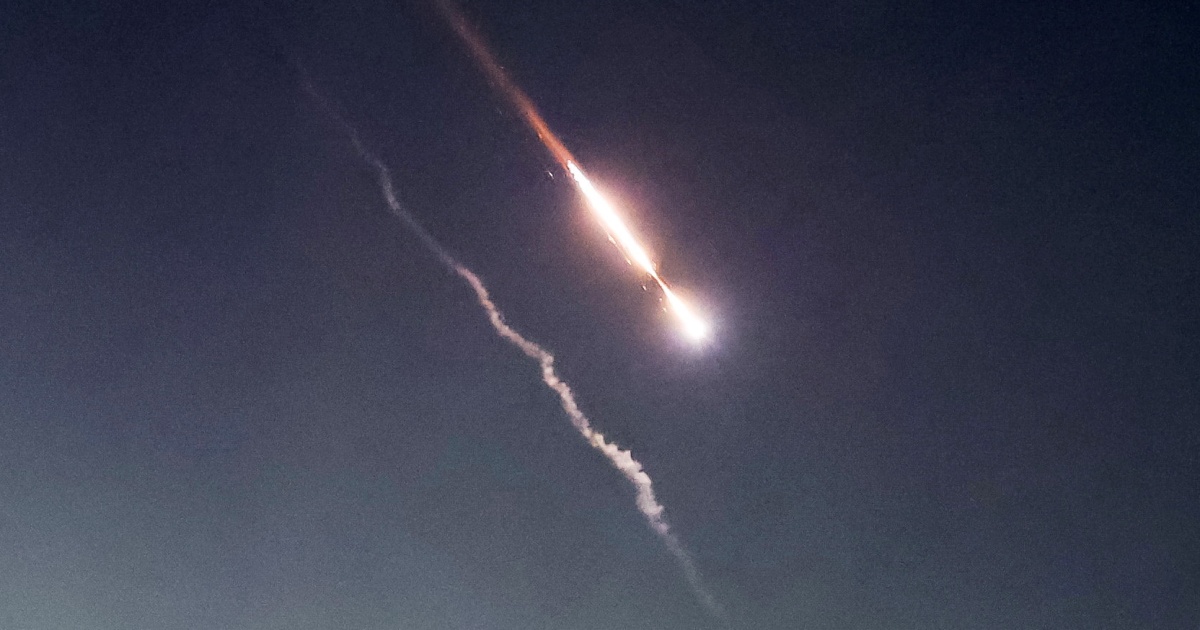Iran launched over 300 drones, ballistic missiles, and cruise missiles towards Israel, the first direct military attack by Iran on Israeli territory. The attack, which occurred overnight, was reportedly in response to an Israeli raid on the Iranian consulate in Syria two weeks prior.

Also Read: FTX Founder Sam Bankman-Fried Appeals 25 Years Prison Sentence
More than 300 drones, ballistic missiles, and cruise missiles were launched by Iran. Israeli military reports that 99% of the threats were intercepted, with assistance from allies including the US, UK, and France.
Launches originated from Iran, Iraq, and Yemen, setting off air raid sirens across Israel. Reports suggest involvement of Iranian forces, including the Islamic Revolutionary Guard Corps (IRGC).
Medics reported a girl in southern Israel wounded by shrapnel. Minor damage occurred at an Israeli military base in southern Israel.
Iran cited retaliation for the Israeli raid on the Iranian consulate in Syria, which resulted in casualties including IRGC generals.
Western countries condemned the attack, addressing the support for Israel’s security. UN Security Council scheduled an emergency session at Israel’s request. US President Biden reaffirmed commitment to Israel’s security.
Israel’s multilayered air-defense system, aided by US and other allies, successfully intercepted the majority of incoming threats. Israel’s defense minister praised the effectiveness of their defense systems.
Iran warned of a more severe response if Israel were to make another “mistake.”
The attack raised tensions across the region, making neighboring countries to close airspace and heighten defenses. Hezbollah and Hamas, backed by Iran.
Diplomatic efforts, including UN and G7 involvement, seek to de-escalate tensions and prevent conflict. US and allies are coordinating a unified response to Iran’s aggression.
The origins of the attack trace back to an Israeli raid on the Iranian consulate in Syria, which resulted in casualties, including senior members of the Islamic Revolutionary Guard Corps (IRGC). Iran retaliated, launching what it termed a punitive strike under Operation True Promise.
Also Read: Vietnam Real Estate Tycoon Truong My Lan Sentenced to Death
The attack involving multiple types of munitions and launched from various locations including Iran, Iraq, and Yemen had challenge to Israel’s defense capabilities.
Israeli military officials reported that 99% of the incoming threats were successfully intercepted, with assistance from allies such as the United States, the United Kingdom, and France.
With neighboring countries such as Iraq, Jordan, and Lebanon temporarily closing their airspace in response to the threat level.
Analysts have characterized Iran’s move as a calculated attempt to assert its deterrence capabilities while avoiding direct confrontation.
Iran has framed the attack as retaliation for an Israeli raid on the Iranian consulate in Syria, which resulted in the deaths of several high-ranking officers from the Islamic Revolutionary Guard Corps (IRGC).
The operation, dubbed “Operation True Promise,” was portrayed as a punitive measure against perceived Israeli aggression.
The attack has condemnation from Western nations, including the US, UK, France, and others, reaffirming their support for Israel’s security.
Diplomatic channels have been activated to urge restraint and de-escalation, with efforts focused on preventing deterioration of the situation.
Israel’s robust defense infrastructure, including the Iron Dome missile defense system, was the main reason in neutralizing the majority of incoming threats.
Also Read: Los Angeles: $30 Million Cash Stolen in One of the Biggest Heist in LA History





















